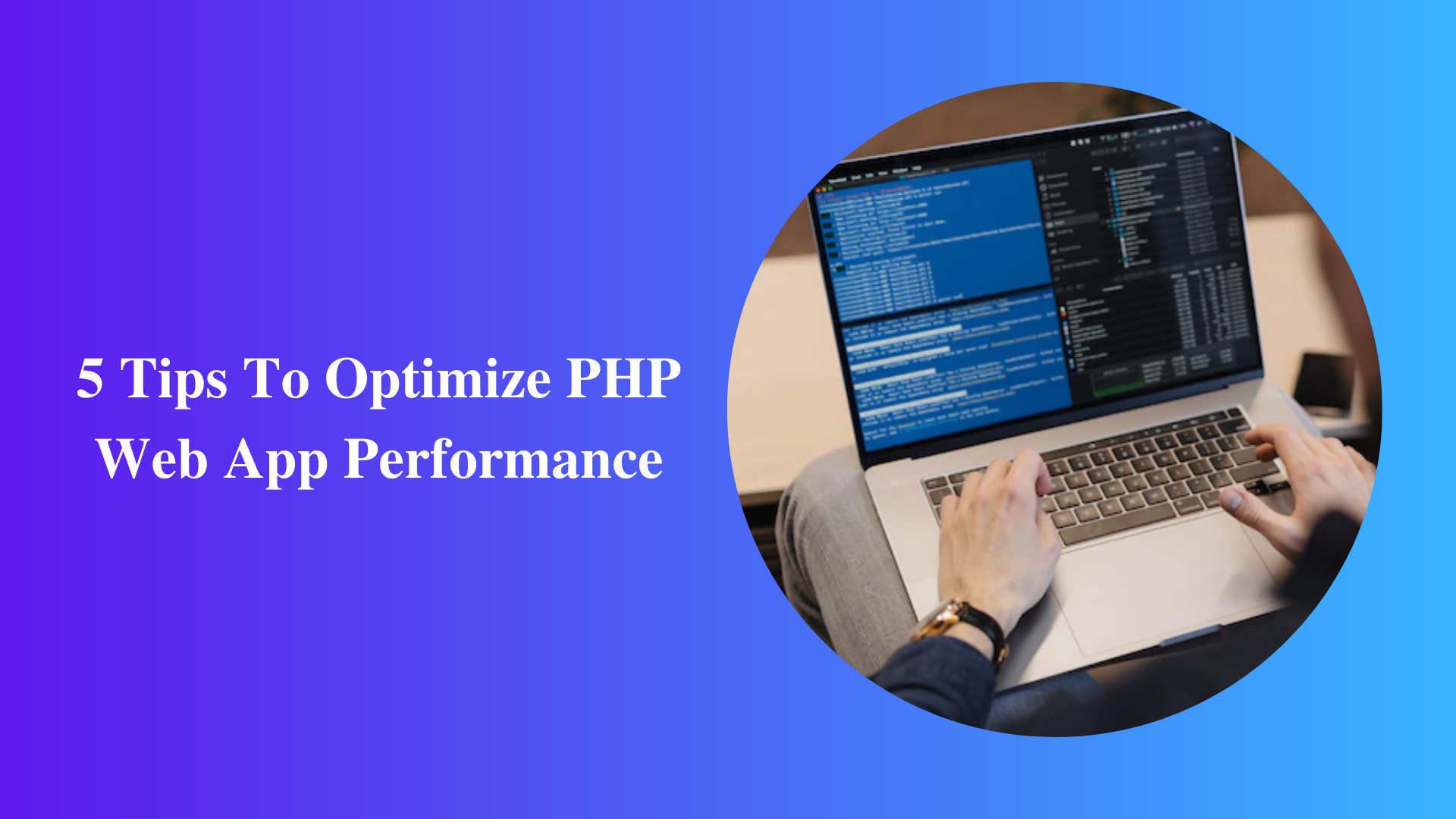People spend an average of close to 5 hours on their mobile each day. That makes mobile phones a great way to get in touch with your business audience.
But if you are thinking of getting an Android/iOS app developed, think again.
People don’t like downloading apps.
Most apps get uninstalled within 30 days of being installed.
And mobile app development is a costly and time-taking process.
Now imagine if your audience could run an app with native-like features through their web browsers, without downloading any app.
Web applications make that possible.
And PHP is one of the most commonly used languages used for developing a web application.
While web apps are a great way to reach more audiences with ease, the market is very competitive. If you want to make sure your PHP-based web app beats competitors and creates an impact on your target audience, you need to make sure it is well-optimized.
And the good part is that in this article, you’ll find 5 basic ways in which you can optimize your PHP web app for superior performance.
Before we get to the 5 PHP web app optimization tips, let’s address one important question…
When is the right time to optimize your PHP web app for great performance?

To be able to optimize your web app for the best performance, you need to start right in the development phase. Later on, as the web app enters the Alpha or Beta testing phase, major changes become complicated and tough.
Thus, make sure you hire the right team of experts who will ensure the on-the-go optimization of your PHP web app.
5 Tips For Optimizing PHP Scripts
1. Use native PHP functions
Instead of coding new functions yourself, prefer using PHP’s native functions (there are plenty of them!)
For beginners, it might take some time to understand how to implement the native functions. However, it is a fair trade-off for a faster and more efficient app.
Plus, not having to code new functions will also improve your PHP web app’s time to market.
2. Pick JSON over XML
JSON (JavaScript Object Notation) is specifically designed for data interchanges. XML (Extensible Markup Language), on the other hand, is designed for much more.
Thus when you are selecting a solution for data interchange, pick JSON as it is faster.
Want to still use XML for your web app? Make sure you parse it using regular functions and ditch DOM manipulations.
3. Remember to cache
Like everything else, using caching techniques can ensure faster load speed for your PHP web app. This happens because the files are stored locally. APC or OPcache are two of the most suitable caching engines that you can use to reduce execution times during script compilation.
4. Assign values at the beginning
A lot of time is spent using variables for calculations. However, if you are using the same value of a variable for multiple calculations, you can save time by assigning the value at the beginning itself.
This will not just improve speed but also lead to fewer processes being performed and thus, higher efficiency as well for your PHP web app.
5. Disable debugging notifications before the launch
During the development phase, debugging notifications can come in extremely handy. These notifications alert PHP developers about things that need to be fixed or fine-tuned.
However, after the development is done, these notifications are not useful anymore. Thus, it is best to disable the debugging notifications before the PHP web app is made live.
If not, it can slow down the performance of the web app with unnecessary processes being carried out in the backend.
Bonus Tip: Prefer 3 equal to signs
When you are using equal to signs for comparison, use 3 signs instead of 2. This is because three equal-to-signs (===) check only for closed ranges and thus are faster than two equal-to-signs (==).
Quick Summary
- Use Native PHP functions
- Pick JSON over XML
- Remember to cache
- Assign values at the beginning
- Disable debugging notifications before the launch
- Prefer 3 equal to signs
Some other tips include:
- Remove unnecessary calculations
- Use isset()
- Remove unnecessary classes
- Close database connections
- Limit your database hits
- Use the strongest str functions
- Stick to single quotes
Getting Started
With that, we have shared the most valuable tips for optimizing your PHP web app’s performance. But if you want to make sure that your app is actually perfect in both look and performance, it is best to hire experts.
Our team has several PHP experts who can help you design, develop, and deploy a high-performance web app.
You can check out some of our previous work with PHP by visiting here.
About SynergyTop
SynergyTop is a reliable digital commerce company offering web, mobile, and eCommerce development services. We also specialize in custom software development, digital marketing, ERP implementations, and Oracle Commerce services.
With a decade of experience and 50+ dedicated developers, we can give wings to your dreams and yield desirable results for your business.

















